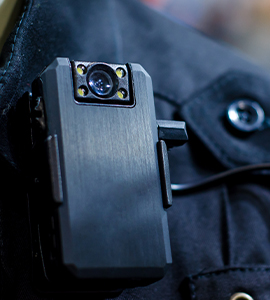Maryland Enacts Sweeping Changes for Police Accountability
 In response to a series of racially charged and internationally publicized cases involving allegations of police misconduct, including the murder of George Floyd while in police custody in Minnesota and the death of Freddie Gray while in Baltimore City Police custody in 2015, the Maryland Legislature has been drafting and finalizing a number of laws designed to increase police accountability by monitoring behavior, providing recourse to those who have alleged they were wronged and placing restraints on police department’s behavior and internal processes, statewide.
In response to a series of racially charged and internationally publicized cases involving allegations of police misconduct, including the murder of George Floyd while in police custody in Minnesota and the death of Freddie Gray while in Baltimore City Police custody in 2015, the Maryland Legislature has been drafting and finalizing a number of laws designed to increase police accountability by monitoring behavior, providing recourse to those who have alleged they were wronged and placing restraints on police department’s behavior and internal processes, statewide.
In 2021, overriding Governor Larry Hogan’s veto, the Maryland General Assembly passed sweeping changes to the law as it relates to police accountability, access to police officer’s personnel files, execution of search warrants, and even banned police departments from purchasing certain surplus military equipment such as weaponized drones, military-type vehicles, etc.; these new laws took effect October 1, 2021.
Policing the Police
Part of the new legislative package creates a new unit in the State Attorney General’s Office to investigate deaths of civilians at the hands of the police in Maryland. This new unit will have all of the investigative powers of a State’s Attorney’s office; it can even use the grand jury in any county in Maryland to assist it in the investigation of police officers.
There has also been an expansion to the public’s access to police disciplinary records. In the past, it has often been difficult to obtain internal police personnel files. The police have, for the most part, “policed themselves” resulting in public mistrust. This new provision in Maryland law is designed to create a level of transparency and accountability in policing which heretofore has not existed. This is known as Anton’s Law and is named after Anton Black, a 19-year-old man who dies in police custody in 2018.
Yet another law passed in this most recent legislative session prohibits law enforcement agencies from purchasing certain surplus military equipment. This equipment includes but is not limited to drones, military vehicles, “weaponized aircraft”, etc.
What are "No-Knock" Warrants?
In response to the death of Breonna Taylor in Louisville, Kentucky at the hands of police who were at the time executing a “no-knock” warrant, the Maryland legislature has enacted new legislation which puts significant restraints on when and how law enforcement officers in Maryland may obtain and execute this type of warrant. Warrants come in two types, “knock and announce warrants” and “no-knock warrants”; they are what their labels imply.
Police in possession of a “knock and announce warrant” are required to knock on a door to an address for which they have a warrant and make themselves known. This does not preclude them from entering the premises after announcing, but a reasonable amount of time must be given to the occupant of the premises to “open the door”. The amount of time deemed “reasonable” will vary on a case-by-case basis and is dependent upon a variety of enumerated factors.
A “no-knock warrant” permits law enforcement to enter a premise without announcing their presence. The police can quietly approach, prepare themselves and without notice, force entry into a building. From a law enforcement perspective, a “no-knock warrant” provides them with the element of surprise and lessens the possibility of evidence of a crime being destroyed or a suspect escaping.
Changes to "No-Knock Warrant" Procedures
Since the occupants of a building may not know who is breaking down their door, there is an enhanced risk to both police and occupants who often do not know if the people breaking in without warning are criminals coming to harm them. In response to these dangers, the Maryland Legislature will now require police officers to seek a “no-knock warrant” do the following:
- Have their request approved by their supervisor; and
- Have their request approved by the State’s Attorney; and
- That the officers executing the warrant be trained in “no-knock” procedures; and
- That their application for a “no-knock” warrant contain information intended to ensure a judge will approve the request only when doing so is both safe and necessary; and
- That “no-knock” warrants can only be executed between 8 am and 7 pm.
If you or a family member has had a search warrant executed upon you or are the subject of police misconduct, contact Craig M. Kadish, to discuss your situation.


